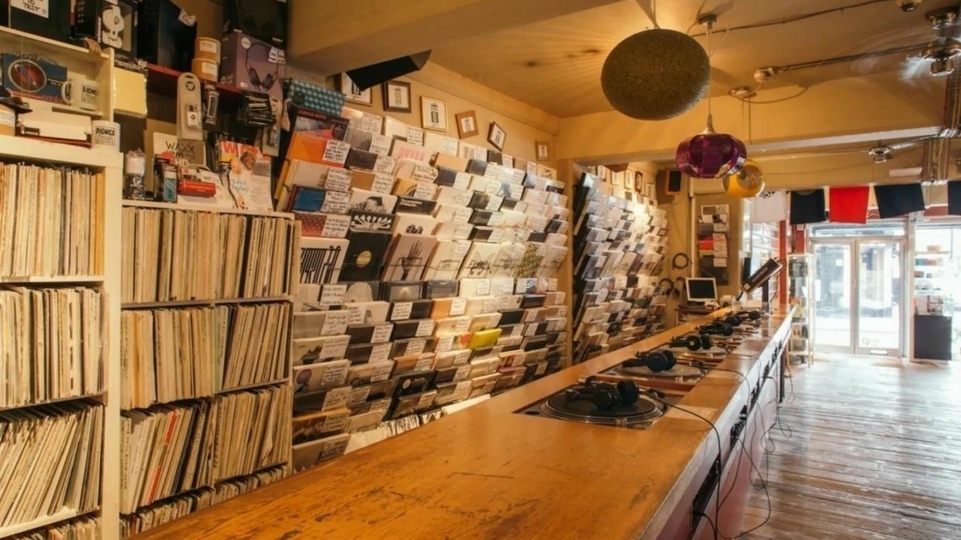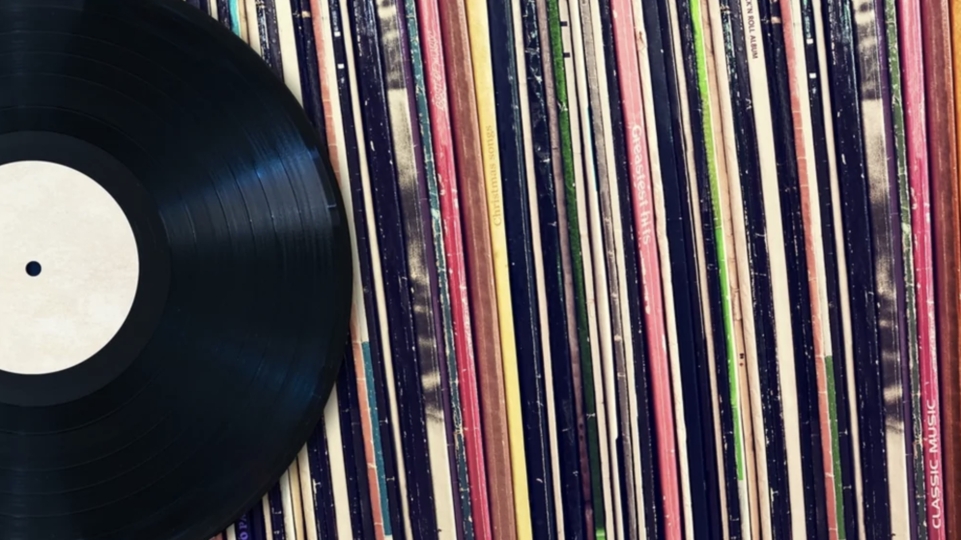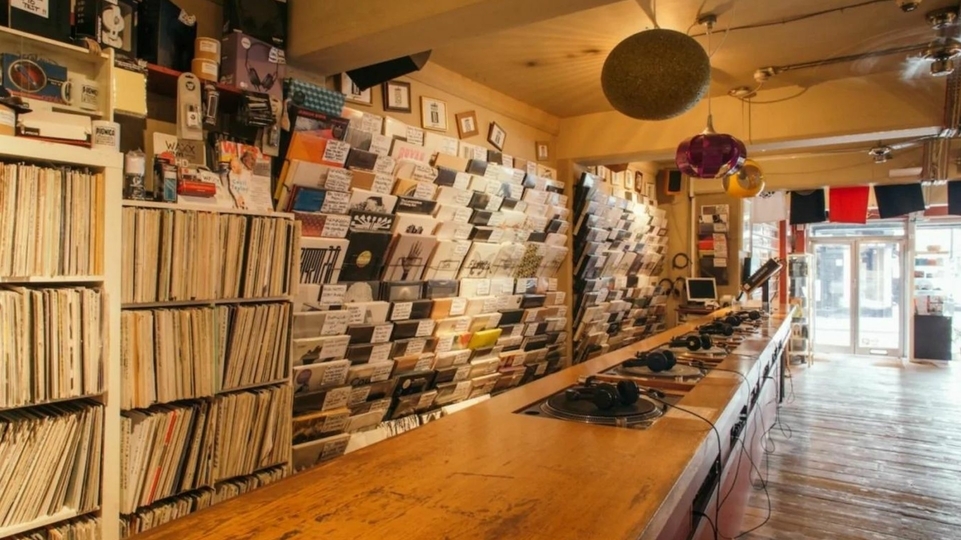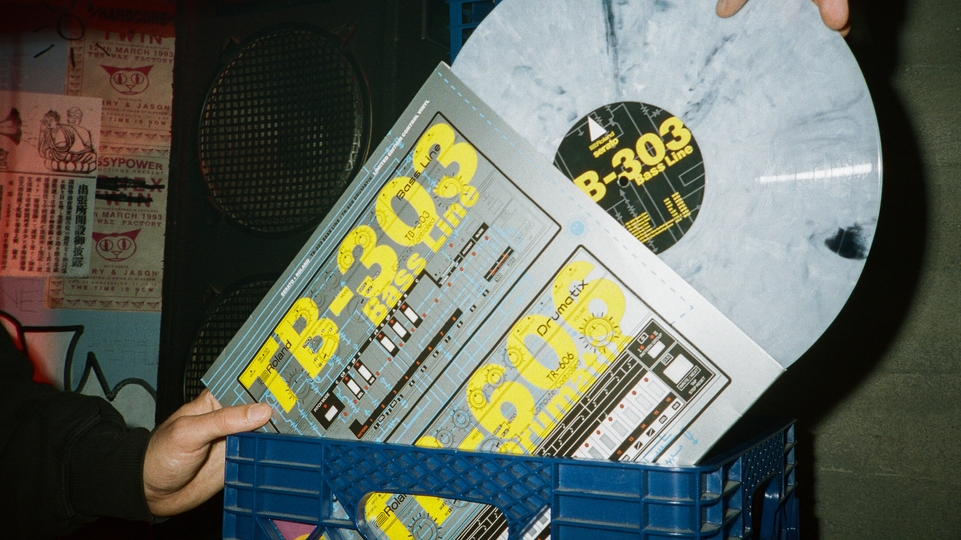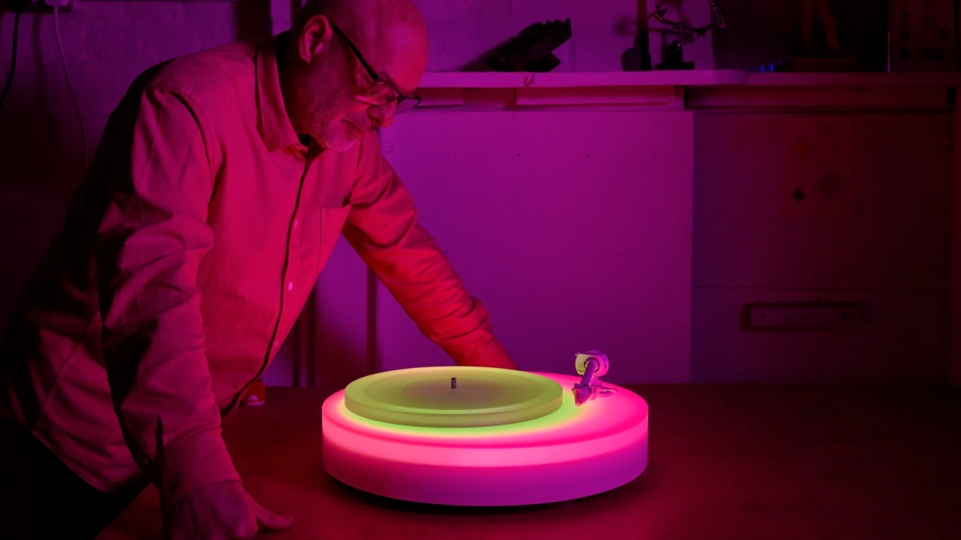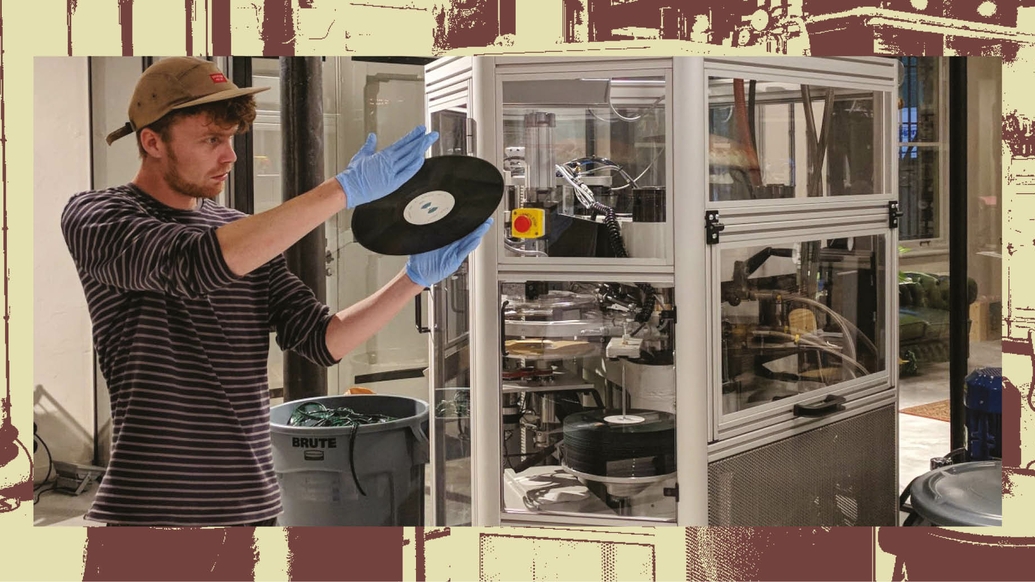
Can our vinyl obsession ever be environmentally friendly?
Vinyl is back, but the format comes with a serious environmental cost. As the dance music world attempts to go greener, some companies are working out ways to make our wax obsession as eco-friendly as possible — we spoke to the head of one such manufacturer, Deep Grooves Pressing Plant, to find out more
From the travelling of punters and touring artists, to the plastic consumption in nightclubs and festivals, all the way to the production of equipment and physical music, it’s fair to say that the music industry isn't the most environmentally friendly. A report from Powerful Thinking back in 2016, for example, showed that British music festivals alone produce 23,500 tonnes of waste, use five million litres of fuel and have CO2 emissions of almost 20,000 tonnes every year — and festivals have only grown in number and size since.
Those in the industry aren’t unaware of its footprint though, and changes are constantly being made to improve. Counting A-Trak, Jamie Jones, Lauren Flax, Louisahhhh and Soul Clap among its ambassadors, organisation DJs For Climate Action encourages artists to use their art and cultural influence to provoke response and raise awareness regarding climate change. This year saw London clubs The Pickle Factory and Oval Space became the first in the capital to go 100% plastic-free, scrapping all non-recyclable bottles, cups, and even wristbands, in favour of eco-friendly alternatives. And international event promoters Live Nation also pledged that five of the UK’s biggest festivals — Download, Latitude, Leeds, Reading and Wireless — will be plastic-free by 2021.
One arm of the industry that’s often overlooked in terms of environmental impact, however, is the manufacture and distribution of physical releases. 4.2 million vinyl albums were sold in the UK alone in 2018, an increase of 1.6%, or an additional 100,000 sales, from 2017. 35,000 cassette tapes were also sold in the six-month period at the start of 2019, which is almost double the 18,000 that were sold between January and June of 2018. The increase in sales means an increase in production, and the production of both of these physical formats is a largely damaging process.
When it comes to vinyl production specifically, each stage of the meticulous process is harmful. The fossil fuel, crude oil, is extracted from limited sources in the ground, refined and processed into PVC granulate — the material that your standard vinyl is made from. The typical black colour of vinyl is derived from carbon black, a by-product from the burning of petroleum substances like tar. Studies from professors and other qualified professionals estimate that we have around 50 years until all fossil fuel sources are depleted, and although we can use alternatives, fossil fuels are ultimately irreplaceable.


“I visited a few plants, and I saw the differences between the ideal situation, how we thought it should be, and the reality”
There are schemes in place to “make amends” for emissions — such as CO2, sulfur dioxide, methane and nitrous oxide — that come from burning fossil fuels. Carbon offsetting is a way to counteract the toxic emissions, particularly those generated from the distribution process, but it doesn’t prevent them. Forward-thinking labels like Ninja Tune have worked in collaboration with artists to offset their emissions, with the production of Jayda G’s ‘Significant Changes’ album offset by the record sales funding a clean water project in India.
The plants pressing the vinyl are working towards a greener future, too. In 2017, Chicago pressing plant Smashed Plastic purchased a steam presser from Canadian tech startup, Vyril. The $200,000 Vyril machine runs without electricity, and the only downside, if you can call it that, is a five second delay on pressing time. Companies like Record Technologies Inc. in California have been operating since 1972 with a boiler setup, too, burning natural gas as opposed to fossil fuels.
Although there are pressing plants dedicated to change, it’s still proving hard to make a difference. The impact of paper and plastic usage on packaging, the pollution caused by the logistics of transporting vinyl, and the fact that PVC is non-biodegradable all add up.
Launched in 2017, Dutch pressing plant Deep Grooves is aiming to eventually become 100% sustainable. Founder Chris Roorda originally set up a label and record store, Deep Trax Records, in 2004 in Leeuwarden in the north of the Netherlands, after becoming a DJ during his studies in Amsterdam. He became hooked on the electronic offerings of Chicago and Detroit, using a free rail pass to travel to record stores and purchase vinyl, and what followed was a vinylcentric career.
“When we opened the store Deep Trax, we decided to start a label too. We got the first records pressed at a plant in the Czech Republic,” Roorda remembers. “None of the team were satisfied with the service, the quality, the turnaround. That was when I made a plan to do it myself, and start a plant.
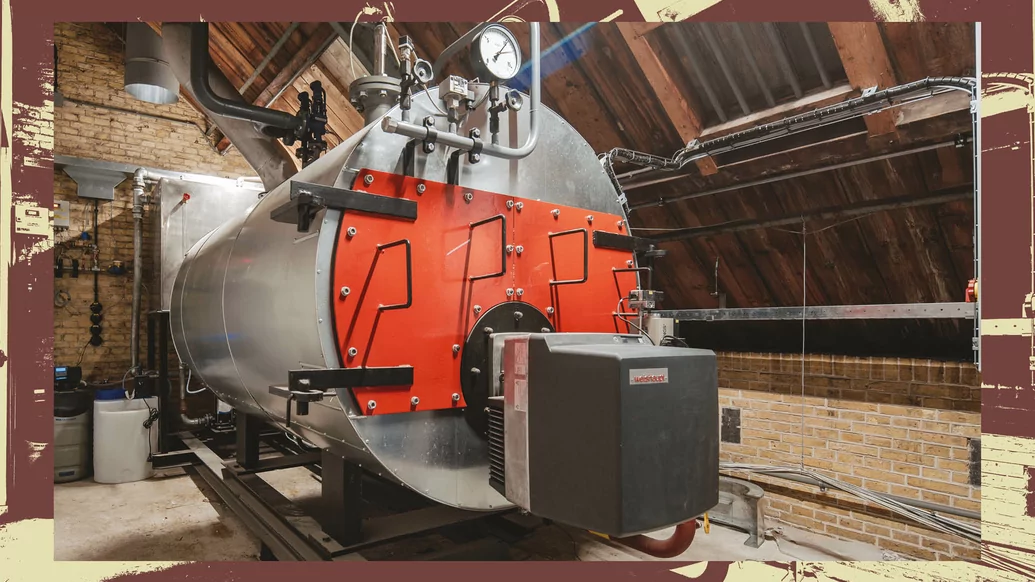

“I visited a few plants, and I saw the differences between the ideal situation, how we thought it should be, and the reality,” Roorda says, explaining how sustainability was built into the very blueprint of the Deep Grooves plant. “I knew when I started that I wanted it to be a thorough project, and I knew from the beginning we could make a difference and do things properly.”
The plant itself is situated two hours north of Amsterdam in Leeuwarden, inside a former World War II prison called Blokhuispoort, which is also home to hostels, cafes and the city’s library. “I was interested in the prison location for a long time,” Roorda says. “It’s so impressive, I knew I wanted Deep Grooves to begin there. I invited a team of people to come and have a look and see what could be done with the place, as the building is considered a monument in Holland. It was a hell of a job to get there, but I’m from a part of the world where they say ‘We’ll make it work anyhow, despite the means’. So I did — and then there was Deep Grooves.”
The factory itself is eco-friendly, and has been — since opening its doors — using biomass-driven technology and green power. Sustainable energy is used to power the two Swedish Pheenix Alpha AD12 Vinyl Presses, and the records themselves are housed in recyclable packaging, with all orders shipped using eco-friendly, carbon-neutral express services.
“We can’t say we’re 100% an eco-plant yet, obviously. There are still factors we can’t make a difference to yet, like the actual granulate,” Roorda explains. The PVC granulate, from which the vinyl is pressed, from production to use to disposal, results in the release of highly toxic chlorine-based chemicals.
“Everything we actively can do, we did from the start, and we still continue to do,” Roorda says. “The granulate is one of the big challenges. We can’t build a granulate factory, but we choose to use the most eco-friendly granulate we can source: coloured vinyl, all the special patterns and limited editions — we do all of that using eco-methods too.”
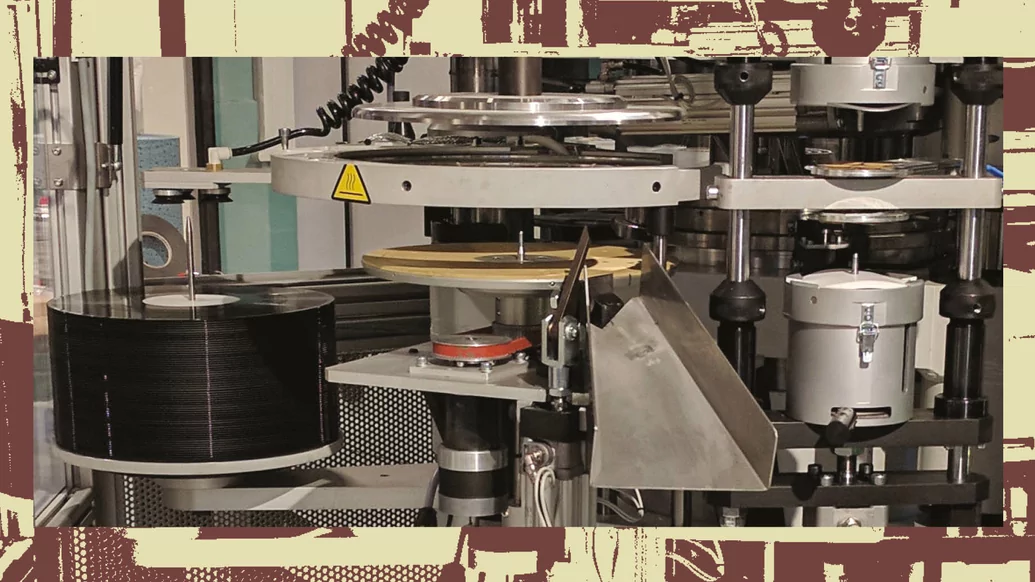

Since the factory opened, the team at Deep Grooves has grown to comprise 15 like-minded employees. Roorda describes the group as “small but extremely efficient”. The plant has pressed for record labels such as hardcore outlet Ruffneck Records, Further Electronix, and Red Light Radio and Intergalactic FM residents, Knekelhuis Records. They’ve also worked with Balance Music and Modern Magic, and pressed NTS favourite Charlie Bones’ first EP on his Do You Records imprint.
“More record companies, festivals and labels are reaching out,” Roorda says, discussing the appeal of their unique service. “The eco-aspect is becoming even more important in the music industry, some DJs only perform if they can get to the festival or show via train. People want to press at our plant because of the quality of record we provide, but even more so now because of the methods we use.
“Every day, more companies are getting on board with it. They want to be able to say that their products have been delivered from start to finish in an environmentally friendly way. The fact the customers who use our service share our vision makes it even more important to us.”
Roorda tells DJ Mag that Deep Grooves are continually seeking out new, eco-friendly alternatives for parts of their process that can still be improved. “We have so many plans to develop and become more efficient,” he says. “We’re constantly working on the 100% eco ethos, especially when it comes to distribution. That’s our mission for the next year.”
